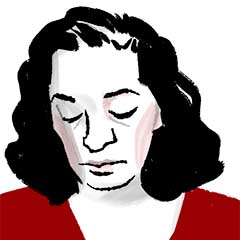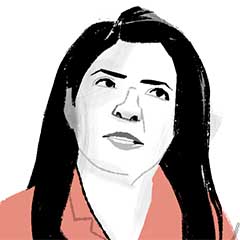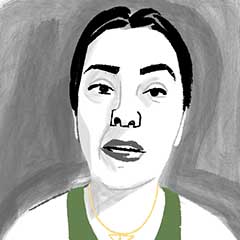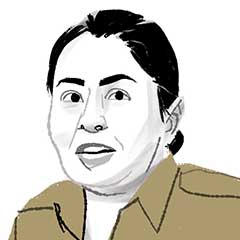Part 2
Facing the Music
A private birthday celebration filled with song and dancing turns into a public nightmare.
By Julie Taboh, Elizabeth Walsh and Brian Williamson | VOA News

“I was in prison for four days for basically nothing.”
Sahar
a 47-year-old Iranian American living in California
“It was a birthday party [at a friend’s house]. We were all dancing to the music.”
“All of a sudden, [a] few people got in.”
“They climb[ed] the wall and came in.”
“They were plainclothes police. They said they got a call.”
“They told us all to sit down. They told the girls to cover their hair and put on their manteau [a long coat]."
“They asked for our identification and wrote down everybody's name.”
“[One of the friends had been] videotaping during the party.”
“Even though [the friend] went upstairs and hid the camera, [the police] found it and took the video.”
Soon after the 1979 Islamic Revolution, Ayatollah Khomeini banned music broadcast on TV and radio.
He said,
“[Music] stupefies persons listening to it and makes their brain inactive and frivolous.”
Though illegal, music, alcohol, dancing and even raves have continued in Iran, with partygoers risking jail and corporal punishment.
In 2018, several Iranian women were detained for posting videos of themselves dancing on Instagram.
Iranian state television broadcast their apologies and featured police officers and other “experts” discussing how social media enables crime.
In the wake of Mahsa Amini’s death, dancing has continued to surface in Iran, not only as an act of defiance but to protest against the regime.
“[The police] kept us in the police station that night.”
“We were about 20 people, including the host and the parents of the host.”
“One by one, they would call us to the room and show us the video that they took from us.”
“One by one, they would put the video of you up to show what you were doing at that moment and interrogate you.”
“Thankfully, it was kind of cold, so I was wearing long sleeves, and my tights were very thick.”
“But other people were sleeveless and wearing short skirts. They got into more trouble.”
“After the interrogation, they put us all in a van.”
“And we were, like, ‘Oh, they're going to take us to the main police station, and they're going to release us.’ ”
“But they took us to prison.”
“Thankfully, [the women] had one section of the prison, completely separated from other criminals.”
“In prison, it was horrible, because they treat you like a whore.”
“They searched us all over. They stripped us completely.”
“We were 21 people, I think, in one room. It was just horrible.”
“A few days later, they took us to the court.”
“They actually chained two of us together, foot to foot.”
“There was a judge with something in front of him.”
“He read it to me and he's, like,
‘Sign it. That's it. Sign it.’ ”
“It was kind of a confession, saying these are your punishments, and this is how much you're going to pay us.”
“Because I wasn't wearing anything revealing except my hair, I didn't get any whipping.”
“But people who were wearing short skirts and sleeveless [tops], they got whippings.”
“They were lashed.”
“So, the judge would tell everybody, one by one, what their punishments would be.”
“Then we got back to prison and [received] the punishment.”
“They had us actually look at people who were getting whipped.”
“It was horrible, just horrible.”
“The host, the mother of the person having the birthday party, received the most.”
“70 lashes.”
“All of the men had their heads shaved.”
“I still remember it.”
“It’s not just the pain of it that you feel.”
“You feel bad for the person who is being lashed. But actually, I felt more angry than sad or anything.”
“I got so angry, feeling like they’re in power somehow.”
“Those people are uneducated. They pour all their anger into their lashing, onto you, who was just at some party.”
“When I got out, I said, 'I won’t stay in this country.' ”
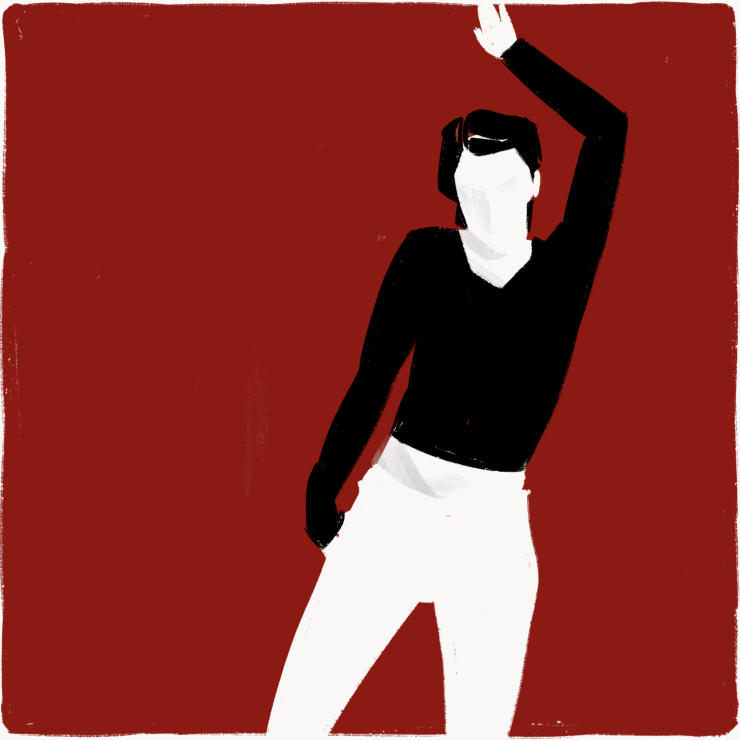
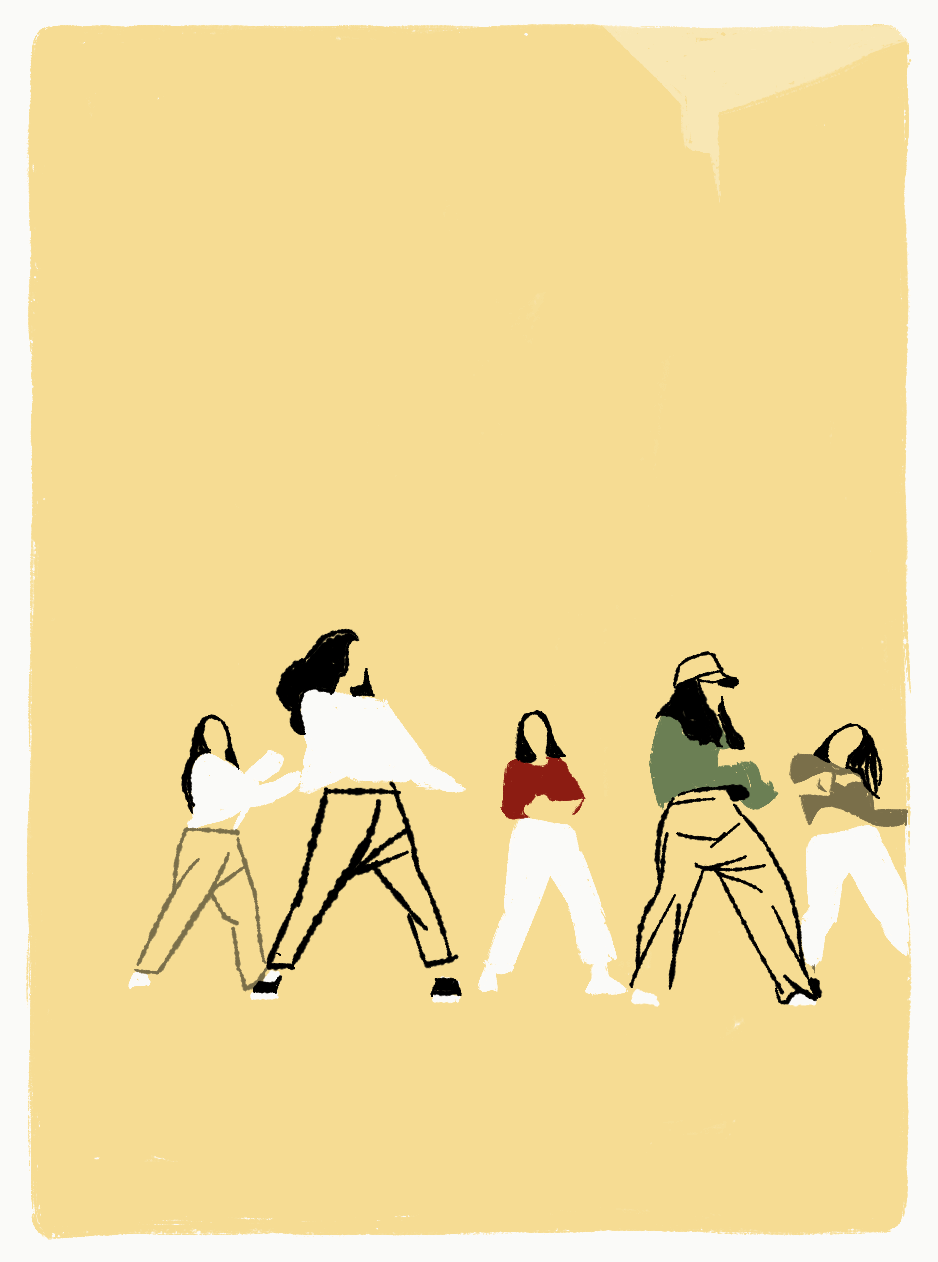


“I was in prison for four days for basically nothing.”
Sahar
a 47-year-old Iranian American living in California
“It was a birthday party [at a friend’s house]. We were all dancing to the music.”
“All of a sudden, [a] few people got in.”
“They climb[ed] the wall and came in.”
“They were plainclothes police. They said they got a call.”
“They told us all to sit down. They told the girls to cover their hair and put on their manteau [a long coat]."
“They asked for our identification and wrote down everybody's name.”
“[One of the friends had been] videotaping during the party.”
“Even though [the friend] went upstairs and hid the camera, [the police] found it and took the video.”
Soon after the 1979 Islamic Revolution, Ayatollah Khomeini banned music broadcast on TV and radio.
He said,
“[Music] stupefies persons listening to it and makes their brain inactive and frivolous.”
Though illegal, music, alcohol, dancing and even raves have continued in Iran, with partygoers risking jail and corporal punishment.
In 2018, several Iranian women were detained for posting videos of themselves dancing on Instagram.
Iranian state television broadcast their apologies and featured police officers and other “experts” discussing how social media enables crime.
In the wake of Mahsa Amini’s death, dancing has continued to surface in Iran, not only as an act of defiance but to protest against the regime.
“[The police] kept us in the police station that night.”
“We were about 20 people, including the host and the parents of the host.”
“One by one, they would call us to the room and show us the video that they took from us.”
“One by one, they would put the video of you up to show what you were doing at that moment and interrogate you.”
“Thankfully, it was kind of cold, so I was wearing long sleeves, and my tights were very thick.”
“But other people were sleeveless and wearing short skirts. They got into more trouble.”
“After the interrogation, they put us all in a van.”
“And we were, like, ‘Oh, they're going to take us to the main police station, and they're going to release us.’ ”
“But they took us to prison.”
“Thankfully, [the women] had one section of the prison, completely separated from other criminals.”
“In prison, it was horrible, because they treat you like a whore.”
“They searched us all over. They stripped us completely.”
“We were 21 people, I think, in one room. It was just horrible.”
“A few days later, they took us to the court.”
“They actually chained two of us together, foot to foot.”
“There was a judge with something in front of him.”
“He read it to me and he's, like,
‘Sign it. That's it. Sign it.’ ”
“It was kind of a confession, saying these are your punishments, and this is how much you're going to pay us.”
“Because I wasn't wearing anything revealing except my hair, I didn't get any whipping.”
“But people who were wearing short skirts and sleeveless [tops], they got whippings.”
“They were lashed.”
“So, the judge would tell everybody, one by one, what their punishments would be.”
“Then we got back to prison and [received] the punishment.”
“They had us actually look at people who were getting whipped.”
“The host, the mother of the person having the birthday party, received the most.”
“70 lashes.”
“It was horrible, just horrible.”
“I still remember it.”
“It’s not just the pain of it that you feel.”
“You feel bad for the person who is being lashed. But actually, I felt more angry than sad or anything.”
“I got so angry, feeling like they’re in power somehow.”
“Those people are uneducated. They pour all their anger into their lashing, onto you, who was just at some party.”
“When I got out, I said, 'I won’t stay in this country.' ”




“I was in prison for four days for basically nothing.”
Sahar
a 47-year-old Iranian American living in California
“It was a birthday party [at a friend’s house]. We were all dancing to the music.”
“All of a sudden, [a] few people got in.”
“They climb[ed] the wall and came in.”
“They were plainclothes police. They said they got a call.”
“They told us all to sit down. They told the girls to cover their hair and put on their manteau [a long coat]."
“They asked for our identification and wrote down everybody's name.”
“[One of the friends had been] videotaping during the party.”
“Even though [the friend] went upstairs and hid the camera, [the police] found it and took the video.”
Soon after the 1979 Islamic Revolution, Ayatollah Khomeini banned music broadcast on TV and radio.
He said,
“[Music] stupefies persons listening to it and makes their brain inactive and frivolous.”
Though illegal, music, alcohol, dancing and even raves have continued in Iran, with partygoers risking jail and corporal punishment.
In 2018, several Iranian women were detained for posting videos of themselves dancing on Instagram.
In the wake of Mahsa Amini’s death, dancing has continued to surface in Iran, not only as an act of defiance but to protest against the regime.
Iranian state television broadcast their apologies and featured police officers and other “experts” discussing how social media enables crime.
“[The police] kept us in the police station that night.”
“We were about 20 people, including the host and the parents of the host.”
“One by one, they would call us to the room and show us the video that they took from us.”
“One by one, they would put the video of you up to show what you were doing at that moment and interrogate you.”
“Thankfully, it was kind of cold, so I was wearing long sleeves, and my tights were very thick.”
“But other people were sleeveless and wearing short skirts. They got into more trouble.”
“And we were, like, ‘Oh, they're going to take us to the main police station, and they're going to release us.’ ”
“After the interrogation, they put us all in a van.”
“But they took us to prison.”
“Thankfully, [the women] had one section of the prison, completely separated from other criminals.”
“In prison, it was horrible, because they treat you like a whore.”
“They searched us all over. They stripped us completely.”
“We were 21 people, I think, in one room. It was just horrible.”
“A few days later, they took us to the court.”
“They actually chained two of us together, foot to foot.”
“He read it to me and he's, like,
“There was a judge with something in front of him.”
‘Sign it. That's it. Sign it.’ ”
“It was kind of a confession, saying these are your punishments, and this is how much you're going to pay us.”
“But people who were wearing short skirts and sleeveless [tops], they got whippings.”
“Because I wasn't wearing anything revealing except my hair, I didn't get any whipping.”
“So, the judge would tell everybody, one by one, what their punishments would be.”
“Then we got back to prison and [received] the punishment.”
“They had us actually look at people who were getting whipped.”
“The host, the mother of the person having the birthday party, received the most.”
“All of the men had their heads shaved.”
“70 lashes.”
“I still remember it.”
“It’s not just the pain of it that you feel.”
“You feel bad for the person who is being lashed. But actually, I felt more angry than sad or anything.”
“I got so angry, feeling like they’re in power somehow.”
“Those people are uneducated. They pour all their anger into their lashing, onto you, who was just at some party.”
“When I got out, I said, 'I won’t stay in this country.' ”




“I was in prison for four days for basically nothing.”
Sahar
a 47-year-old Iranian American living in California
“It was a birthday party [at a friend’s house]. We were all dancing to the music.”
“All of a sudden, [a] few people got in.”
“They climb[ed] the wall and came in.”
“They asked for our identification and wrote down everybody's name.”
“They were plainclothes police. They said they got a call.”
“They told us all to sit down. They told the girls to cover their hair and put on their manteau [a long coat]."
“[One of the friends had been] videotaping during the party.”
“Even though [the friend] went upstairs and hid the camera, [the police] found it and took the video.”
Soon after the 1979 Islamic Revolution, Ayatollah Khomeini banned music broadcast on TV and radio.
Though illegal, music, alcohol, dancing and even raves have continued in Iran, with partygoers risking jail and corporal punishment.
He said,
“[Music] stupefies persons listening to it and makes their brain inactive and frivolous.”
In the wake of Mahsa Amini’s death, dancing has continued to surface in Iran, not only as an act of defiance but to protest against the regime.
In 2018, several Iranian women were detained for posting videos of themselves dancing on Instagram.
Iranian state television broadcast their apologies and featured police officers and other “experts” discussing how social media enables crime.
“[The police] kept us in the police station that night.”
“We were about 20 people, including the host and the parents of the host.”
“One by one, they would call us to the room and show us the video that they took from us.”
“One by one, they would put the video of you up to show what you were doing at that moment and interrogate you.”
“Thankfully, it was kind of cold, so I was wearing long sleeves, and my tights were very thick.”
“But other people were sleeveless and wearing short skirts. They got into more trouble.”
“And we were, like, ‘Oh, they're going to take us to the main police station, and they're going to release us.’ ”
“After the interrogation, they put us all in a van.”
“But they took us to prison.”
“In prison, it was horrible, because they treat you like a whore.”
“Thankfully, [the women] had one section of the prison, completely separated from other criminals.”
“They searched us all over. They stripped us completely.”
“We were 21 people, I think, in one room. It was just horrible.”
“A few days later, they took us to the court.”
“They actually chained two of us together, foot to foot.”
“There was a judge with something in front of him.”
“He read it to me and he's, like,
‘Sign it. That's it. Sign it.’ ”
“It was kind of a confession, saying these are your punishments, and this is how much you're going to pay us.”
“Because I wasn't wearing anything revealing except my hair, I didn't get any whipping.”
“But people who were wearing short skirts and sleeveless [tops], they got whippings.”
“They were lashed.”
“So, the judge would tell everybody, one by one, what their punishments would be.”
“Then we got back to prison and [received] the punishment.”
“They had us actually look at people who were getting whipped.”
“The host, the mother of the person having the birthday party, received the most.”
“70 lashes.”
“All of the men had their heads shaved.”
“It was horrible, just horrible.”
“I still remember it.”
“It’s not just the pain of it that you feel.”
“You feel bad for the person who is being lashed. But actually, I felt more angry than sad or anything.”
“I got so angry, feeling like they’re in power somehow.”
“Those people are uneducated. They pour all their anger into their lashing, onto you, who was just at some party.”
“When I got out, I said, 'I won’t stay in this country.' ”



